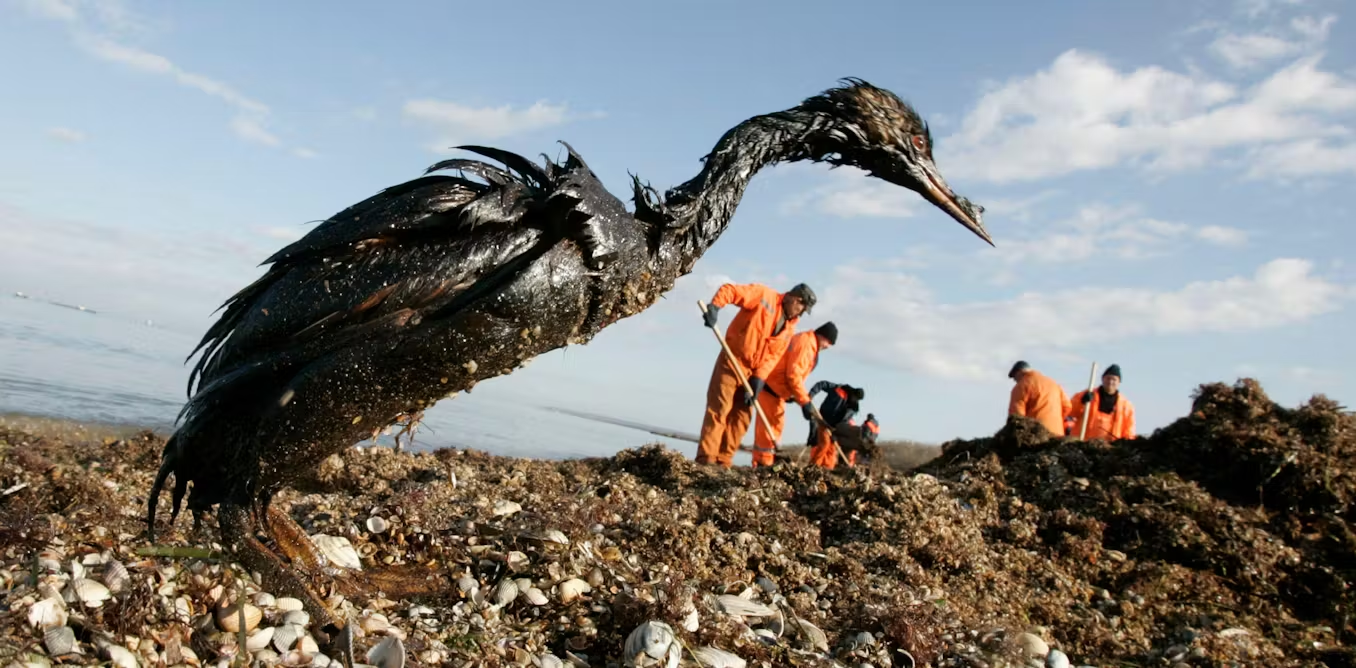A significant environmental crisis occurred due to an oil (mazut) spill in Anapa, a resort city on Russia’s Black Sea coast. On December 15, two aging Russian oil tankers were damaged during a storm in the Kerch Strait.
The spill contaminated approximately 49 kilometers (30 miles) of coastline near Anapa, affecting the water, beaches, and local wildlife. Reports highlighted seabirds covered in oil and struggling to fly, with at least 180 birds found dead and 925 rescued (rescue teams are still working on finding other animals). Additionally, dolphins and porpoises were impacted, with at least 11 dolphins found dead due to clogged airways from the mazut.
Volunteers played a crucial role in the cleanup efforts, working tirelessly to remove oil from beaches and rescue affected wildlife. Approximately 25 tons of oil-water sludge were collected, but challenges persisted due to ongoing pollution and the extensive area affected. However, concerns were raised about the adequacy of the response, with reports of disorganization and insufficient equipment hindering the effectiveness of the cleanup operations, as well as the government’s disinterest in this situation.
The incident has prompted calls for stricter regulations and oversight of aging oil tankers to prevent similar environmental disasters in the future. The situation has also faced the challenge of efficiently removing the thick oil from wildlife (birds, dolphins, etc.) without hurting the animals, motivating private companies to develop new technologies to help volunteers shortly. Other modern innovations that are desperately needed in this situation include chemical solutions and filters that can separate sand from mazut with 100% efficiency.
The long-term ecological impact on the Black Sea region remains a significant concern, with experts warning that the ecosystem could be affected for at least another decade.
However, it is not all depressing. In fact, results of water and sand analysis made by local environmental specialists show that the amount of oil-oxidising bacteria is intensely growing. This shows how fast nature will fight against any catastrophe.

Leave a Reply